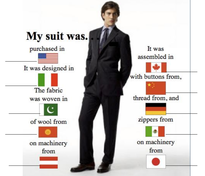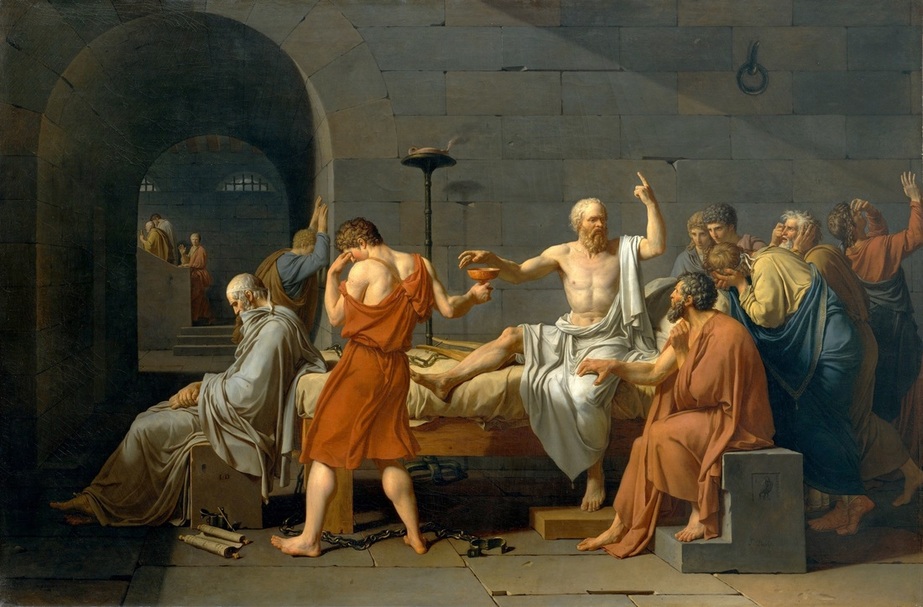|
Formative Assessment #1 - Geography and Culture
In this section, students will explore how geography affects culture. Students will compare the Kenai Peninsula and Greek culture, with specific focus on the aspects of culture that are affected by geography. Step 1: Create a LETS (Language, Economy, Technology, and Social Systems) chart on all the ways that Geography effects the culture of the Kenai Peninsula. You need to use prior knowledge from your experiences living on the Kenai Peninsula to complete this. If you have not lived on the Peninsula for long, use the "Seward information" link below to complete this chart. Then read pages 300-301 in your textbook and create a LETS chart on all the ways that geography affects the culture of Greece. LETS chart and Venn Diagram handout Textbook pages 300-301 Seward Information link Step 2: Either make your own Venn Diagram, or use the interactive Venn Diagram provided to compare how geography affects the culture of the Kenai Peninsula and Greece. |
|
|
Formative Assessment #2 - Trade and the Economy
Vocabulary Word Focus: globalization, surplus, scarcity, import, export, colony Part 1: What are exports and imports? What is Globalization? If you missed the lesson in class, view the Import and Export video below to get a basic idea of how they work. Then complete the handout linked below, using the "My suit was..." picture to the right to get accurate representations of the country flags. CIA World Factbook - Flags of the World Understanding Exports, Imports, and Globalization handout Part 2: Minoan Trade and Colonies
Students will apply what they have learned about exports, imports and globalization to learn about early Mediterranean trade during the Minoan Civilization. This lesson will also introduce the vocabulary word: colony. Minoans and Mediterranean Trade handout Colonies List - Use this link to research one colony. As you research the colony, you need to determine the answers to the following: 1. What is the colony? 2. Who colonized it? 3. Why was it colonized? |
|
Formative Assessment #3 - Economic Depression, Storytelling, and the Greek Dark Ages
Vocabulary word focus: economic depression, recession, Dark Ages, epic
Part 1: Economic Depression
After reviewing the class notes below, complete the handout. If you need a closer look at the graphs from the handout, you can click on them below.
Economic Depression Graph Analysis Handout
Vocabulary word focus: economic depression, recession, Dark Ages, epic
Part 1: Economic Depression
After reviewing the class notes below, complete the handout. If you need a closer look at the graphs from the handout, you can click on them below.
Economic Depression Graph Analysis Handout
Part 2: Storytelling
After reviewing the class notes, read the story The Cyclops's Cave. On a sticky tab, scrap of paper, or email (if you are doing this at home) record all the characteristics of Greek culture specifically related to economy that you recognize.
The Cyclops's Cave
After reviewing the class notes, read the story The Cyclops's Cave. On a sticky tab, scrap of paper, or email (if you are doing this at home) record all the characteristics of Greek culture specifically related to economy that you recognize.
The Cyclops's Cave
Formative Assessment #4 - City-States and Governments
Vocabulary Word Focus: oligarchy, democracy (representative and direct), autocracy (dictatorship and monarchy), theocracy, anarchy, citizen, aristocracy
Part 1: Read pages 304-305 in your textbook. After reading, answer number 1-4 of the Section 1 Assessment on page 305. You may type out this assignment and drop it in the Dropbox. You can also turn it in to the box in class.
Textbook pages 304-305 and questions
Vocabulary Word Focus: oligarchy, democracy (representative and direct), autocracy (dictatorship and monarchy), theocracy, anarchy, citizen, aristocracy
Part 1: Read pages 304-305 in your textbook. After reading, answer number 1-4 of the Section 1 Assessment on page 305. You may type out this assignment and drop it in the Dropbox. You can also turn it in to the box in class.
Textbook pages 304-305 and questions
Part 2: Government
Who rules - Types of Government handout
Frequently it is assumed that Democracy is the superior form of government. It is important to realize, though, that there is no 'perfect' government style. Read the article below and create a T-Chart that describes the benefits and drawbacks of Democracy that you uncovered in the reading. Determine 3 benefits to Democracy, and 3 drawbacks. When you are finished, flip your paper over and do an art analysis on the painting below. Remember, an art analysis involves "observation, reflection, and questions." What do you see? What do you think (and why)? and What do you wonder?
Democracy in Action reading
Who rules - Types of Government handout
Frequently it is assumed that Democracy is the superior form of government. It is important to realize, though, that there is no 'perfect' government style. Read the article below and create a T-Chart that describes the benefits and drawbacks of Democracy that you uncovered in the reading. Determine 3 benefits to Democracy, and 3 drawbacks. When you are finished, flip your paper over and do an art analysis on the painting below. Remember, an art analysis involves "observation, reflection, and questions." What do you see? What do you think (and why)? and What do you wonder?
Democracy in Action reading
Formative Assessment #5 - War and Peace
Vocabulary Word Focus: alliance, economic sanctions, quota, tariff, and embargo
Part 1: Create a reanacted battle scene of the Battle of Thermopylae or the Battle of Marathon. Be able to explain geography, what happened, how it ended, interrelations between "countries", and use of army and navy.
Part 2: Alliances
Alliances and the Persian War Handout (just do the front side)
WTO - http://www.wto.org/
NATO - http://www.nato.int/
OPEC - http://www.opec.org/opec_web/en/
Part 3: Trade Barriers
Athens and Economic Sanctions Handout
Vocabulary Word Focus: alliance, economic sanctions, quota, tariff, and embargo
Part 1: Create a reanacted battle scene of the Battle of Thermopylae or the Battle of Marathon. Be able to explain geography, what happened, how it ended, interrelations between "countries", and use of army and navy.
Part 2: Alliances
Alliances and the Persian War Handout (just do the front side)
WTO - http://www.wto.org/
NATO - http://www.nato.int/
OPEC - http://www.opec.org/opec_web/en/
Part 3: Trade Barriers
Athens and Economic Sanctions Handout
|
|
|
Summative Assessment #1 - 20 Question Multiple Choice Test
Summative Assessment #2 - Understanding US-Cuban Relations
Directions: Read the articles listed below (two different reading levels are provided for each article).
"Cubans and the US are beginning to make peace" NEWSELA article (1100 Lexile)
"Cubans and the US are beginning to make peace" NEWSELA article (750 Lexile )
"Easing the 50-year tension between the US and Cuba" NEWSELA article (1070 Lexile)
"Easing the 50-year tension between the US and Cuba" NEWSELA article (730 Lexile)
"President Obama takes controversial step..." NEWSELA article (1220 Lexile)
"President Obama takes controversial step..." NESELA article (750 Lexile)
PDF versions of the NEWSELA articles. All articles are included in this one file.
Cuba and US Relations Research Handout
Directions: Read the articles listed below (two different reading levels are provided for each article).
"Cubans and the US are beginning to make peace" NEWSELA article (1100 Lexile)
"Cubans and the US are beginning to make peace" NEWSELA article (750 Lexile )
"Easing the 50-year tension between the US and Cuba" NEWSELA article (1070 Lexile)
"Easing the 50-year tension between the US and Cuba" NEWSELA article (730 Lexile)
"President Obama takes controversial step..." NEWSELA article (1220 Lexile)
"President Obama takes controversial step..." NESELA article (750 Lexile)
PDF versions of the NEWSELA articles. All articles are included in this one file.
Cuba and US Relations Research Handout













